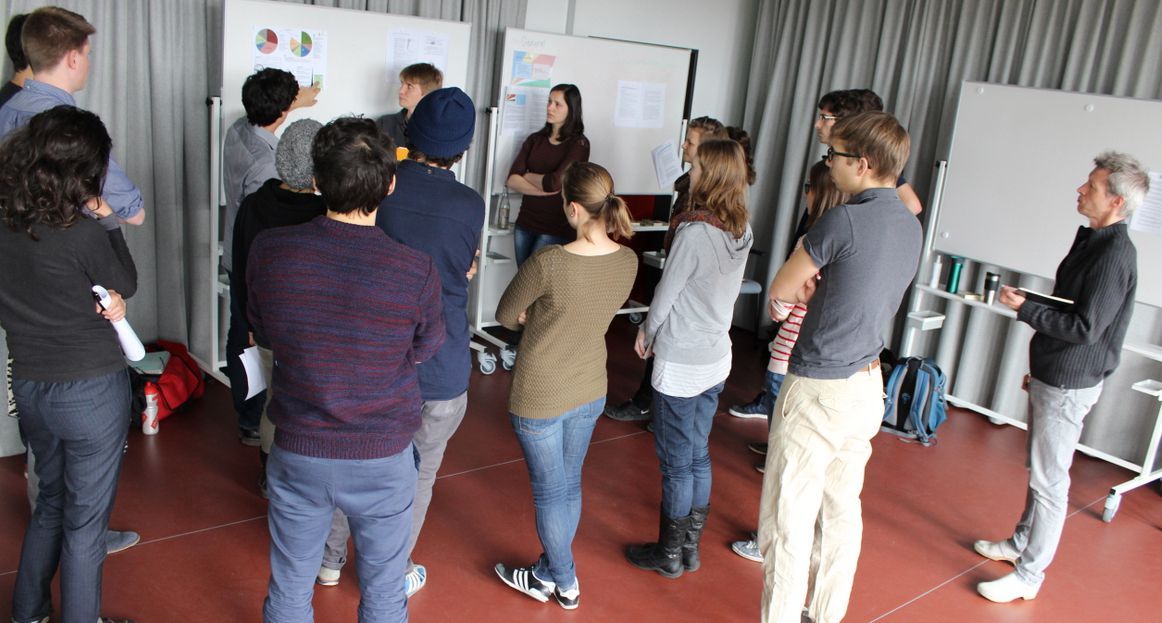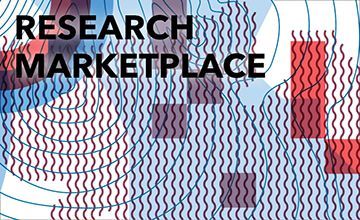Research marketplace
A tool to initiate bilateral and small group exchange between (sub)projects that need to be linked.
Stauffacher M 2020. Research marketplace. td-net toolbox profile (8). Swiss Academies of Arts and Sciences: td-net toolbox for co-producing knowledge. www.transdisciplinarity.ch/toolbox. doi.org/10.5281/zenodo.3717260
| What is the research marketplace? | The research marketplace provides a platform for spontaneous interactions and intense collection of ideas and feedback a) within research teams with diverse disciplinary backgrounds and b) with various societal actors. |
| Why should it be applied? | The research marketplace allows discussions of specific and relevant questions with other members of a research team bilaterally or in smaller groups. Workshop formats with many participants engaged in plenary discussions may rather hinder than promote such spontaneous interactions. |
| When should it be applied? | The tool can be applied throughout the whole research process whenever e.g. links between different projects or subprojects need to be strengthened and new ideas are to be developed. It is especially useful at the beginning of project planning, and best during the actual problem framing. |

| How does it work? | The tool is organised as a group workshop of at least one hour (preferably two) along the following steps: 1) Each team, project or subproject prepares a poster with e.g. idea, project title, short description and/or core research questions (do not use more than a fifth of the available space; can as well be prepared in beforehand, printed on A4 and then be glued on A2-Poster). The posters are spread out in the room (either on pin boards or on the wall).
3) Towards the end of the research marketplace, the participants go back to their own research poster, review notes and discuss necessary adaptations to their research plans. 4) In the plenary, core outcomes and conclusions for future work are shared (just briefly). |
| How are thought styles bridged? | Thought styles are not explicitly bridged. The tool rather enables spontaneous meetings around engaging topics. Likewise, it supports bridging by a mutual substantive and personal interest. |
| What’s the output/outcome? | A wealth of new ideas, comments, concerns, thoughts, reactions, etc. At least in earlier phases of a project, new personal contacts with project team members and informal collaborations can be established. |
| Who participates in what role? | All researchers and societal actors of a project team. A facilitator is helpful but not necessary to introduce rules and procedure of the research marketplace and secure time keeping. If necessary the facilitator reminds participants to move around and especially to take notes on the posters. |
| What do I need to prepare? | Invite the participants, secure enough time (one hour can be enough but more is certainly useful), organise a suitable room (big enough to allow work in many subgroups in the same room), prepare material for group facilitation (white boards, flipcharts, enough pens, etc.). |
| When not to use the method? | The tool should not be used when all subprojects are extremely busy in research work and thus cannot absorb new ideas. |


